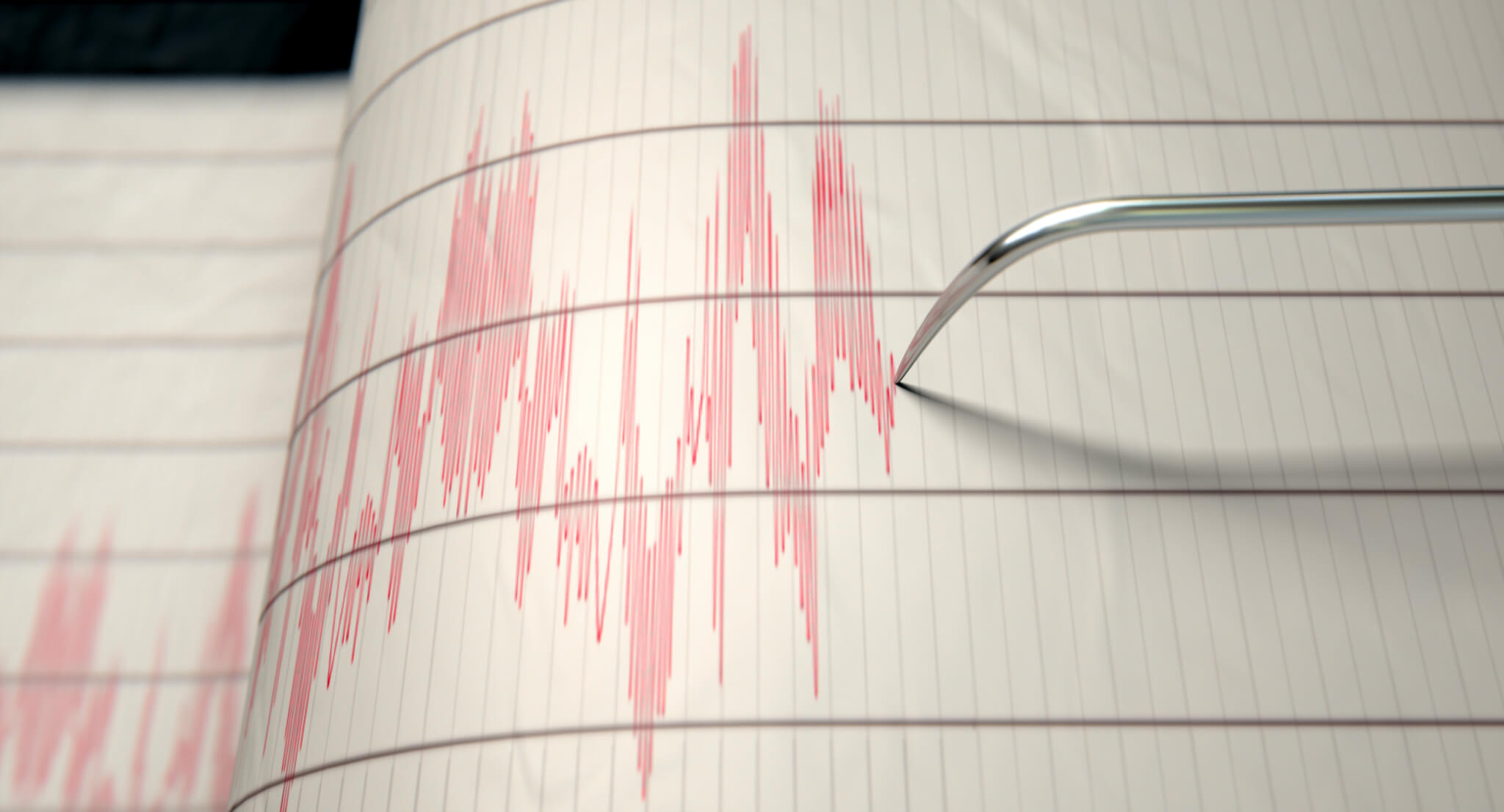
“Earthquake weather” may be a myth, but Virginia is seeing more seismic activity.
RICHLANDS – The ground starts shaking. It’s just a little tremble at first, but unmistakable nonetheless. As earthquakes progress, the tremors become stronger. Within seconds, the earth violently erupts, splitting the ground in half.
“That doesn’t really happen,” said Paul Caruso, a geophysicist at the USGS National Earthquake Information Center. “That’s a product of movies, of Hollywood.”
What does occur, however, are seismic events. And in Virginia, they’re happening more frequently than many residents might realize. From Jan. 2020 to Jan. 31, 2021, eight earthquakes with a Virginia epicenter shook the state, according to Volcano Discovery.
As recently as Thursday night, a 2.9 magnitude earthquake rocked Richlands. Moments before 11 p.m., residents felt the rumbling begin.
A Shaky Scenario
While the Richlands earthquake wasn’t as large as some others, Caruso explained that the magnitude doesn’t necessarily relate to whether or not people feel the tremors.
“There’s a lot of variables involved in how earthquakes are felt. Deeper earthquakes farther underground are not felt as strongly,” Caruso said. “Also depends [on] how close people are to the epicenter of the earthquake. It also depends, if they’re in a house, what sort of soil the house is on, or if it’s on bedrock. Those all factor into how people feel an earthquake.”
That’s not to say magnitude plays a minor role in an earthquake’s overall impact.
“Sometimes earthquakes, even in, say, magnitude three or four range can cause some light damage, maybe cracking of cement or things like that,” Caruso said. “Between, like, magnitude four or five, you could get larger cracks. People may feel those pretty strongly, feel the shaking pretty strongly.”
The higher the magnitude and closer to the surface the quake occurs, the stronger the possibility of major damage becomes.
“Once we get into magnitude five range, that’s where we really start to see damage to buildings. Especially chimneys really seem to be damaged by earthquakes,” Caruso said. “When they get to magnitude 5.5, that’s when we really start to see serious damage. We’ve had deaths from magnitude four earthquakes in some other countries, where people are living in mud buildings that collapse from earthquakes.”
JOIN THE CONVERSATION: Sign Up For Our Dogwood Newsletter
Fake Earthquakes
While the seismic activity in Richlands proved legitimate, Caruso cautioned against believing every ground tremor in the Commonwealth came from a slipped fault line. Some Virginia “earthquakes” aren’t earthquakes at all, especially in the state’s Appalachian and western border regions.
“We also sometimes record explosions from mines on our seismometers, but we don’t report those as earthquakes,” Caruso said. “When we locate those, generally before we publish an earthquake to the internet, we look to see exactly where that earthquake is and we have a catalogue of all the mines in the United States. And so if the earthquake ends up being right on top of a mine, we know it’s probably an explosion.”
It’s not uncommon for an earth-shaking event to occur weekly in the state’s western region – but not from a moving tectonic plate.
“That happens quite often, especially, say, on Friday afternoons, we get a lot of those,” Caruso said. “The mines usually do their stuff on Friday afternoon before all of the people leave and then they can come mine the coal or whatever they’re mining after all the dust settles down the next day.”

Emergency Preparedness
Now, despite what you may have heard, there’s no such thing as “earthquake weather.” You can’t predict an earthquake is coming by the conditions outside. This argument goes all the way back to 4th century B.C. Greece, where the philosopher Aristotle argued earthquakes were caused by trapped winds, pouring out of caves in the ground. He thought a hot and calm day indicated an earthquake was coming.
He was wrong. Thanks to seismology, we know that earthquakes are caused by shifting tectonic plates in the Earth. Here in Virginia, we sit near the center of a tectonic plate, so we don’t get earthquakes as often. However, they still come. The state is divided into three zones of activity, including the Eastern Tennessee, Giles County and Central Virginia areas. And even with that information on hand, we can’t say when the next one will take place.
“No one can predict earthquakes,” Caruso said. “People have been trying for thousands of years.”
We may not be able to predict, but we do know a bit more about what causes them. Cal Tech University recently released a study that said rain, or the lack thereof, can play a part. A group of Cal Tech researchers looked at the earthquake activity in the Himalaya mountains.
They found during wet periods with plenty of rain, the amount of seismic activity drops. When it’s dry, with less water weight on the Earth’s crust, the seismic activity increases. So basically if you have a drought or dry season, there’s a much better chance of an earthquake taking place.
Amie Knowles reports for Dogwood. You can reach her at [email protected]
Support Our Cause
Thank you for taking the time to read our work. Before you go, we hope you'll consider supporting our values-driven journalism, which has always strived to make clear what's really at stake for Virginians and our future.
Since day one, our goal here at Dogwood has always been to empower people across the commonwealth with fact-based news and information. We believe that when people are armed with knowledge about what's happening in their local, state, and federal governments—including who is working on their behalf and who is actively trying to block efforts aimed at improving the daily lives of Virginia families—they will be inspired to become civically engaged.


VIDEO: Your support matters!
Your support matters! Donate today. @vadogwoodnews Your support matters! Visit our link in bio to donate today. #virginianews #virginia #community...

Op-Ed: Virginia’s new Democratic majorities pass key bills to improve your lives, but will Youngkin sign them?
The 2024 Virginia General Assembly regular session has wrapped up. It was a peculiar session from the outset, with Democratic majorities in the...

Op-Ed: Why Virginia Needs A Constitutional Amendment Protecting Reproductive Freedom
Virginia’s recent election season in 2023 drew in eyes from all over the country. Reproductive freedom was on the line and Virginia remained the...

From the state rock to the state flower, here’s how Virginia got its symbols
Have you ever wondered why the Dogwood is the state flower? Or how the cardinal became the state bird? We’re here to answer those questions and more...

VIDEO: Second-gentleman Douglas Emhoff gives speech on reproductive freedom
Second gentleman, Douglas Emhoff touched on reproductive freedom not only being a woman's issue but "an everyone's issue" during the Biden-Harris...

Glenn Youngkin and the terrible, horrible, no good, very bad night
Election Day 2023 has come and gone, and while there are votes to be counted, one thing is perfectly clear: Virginians unequivocally rejected Gov....





